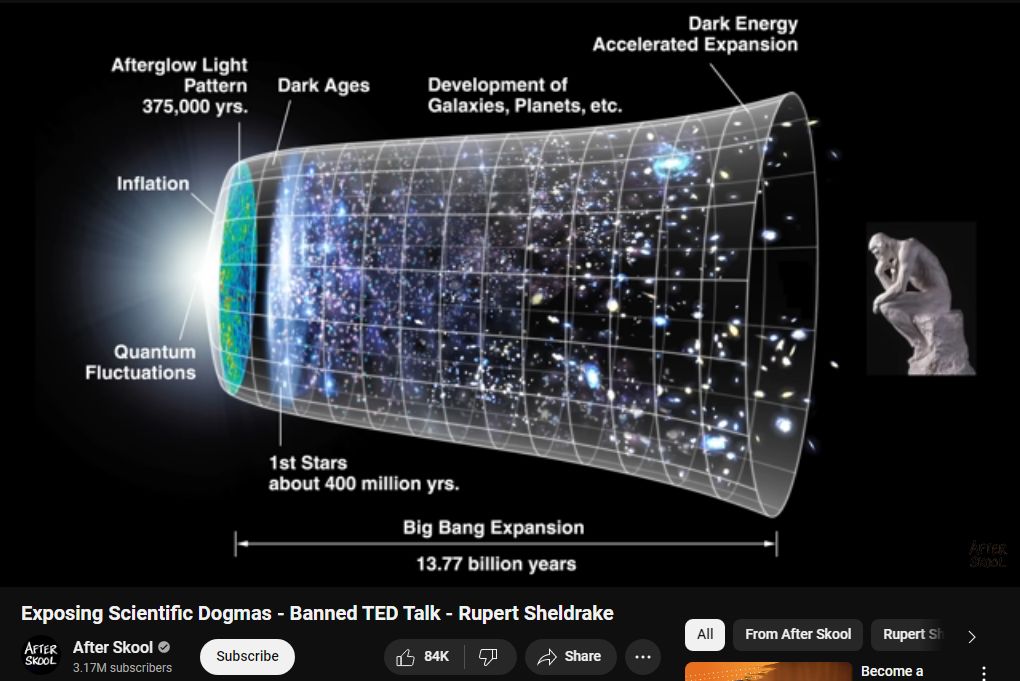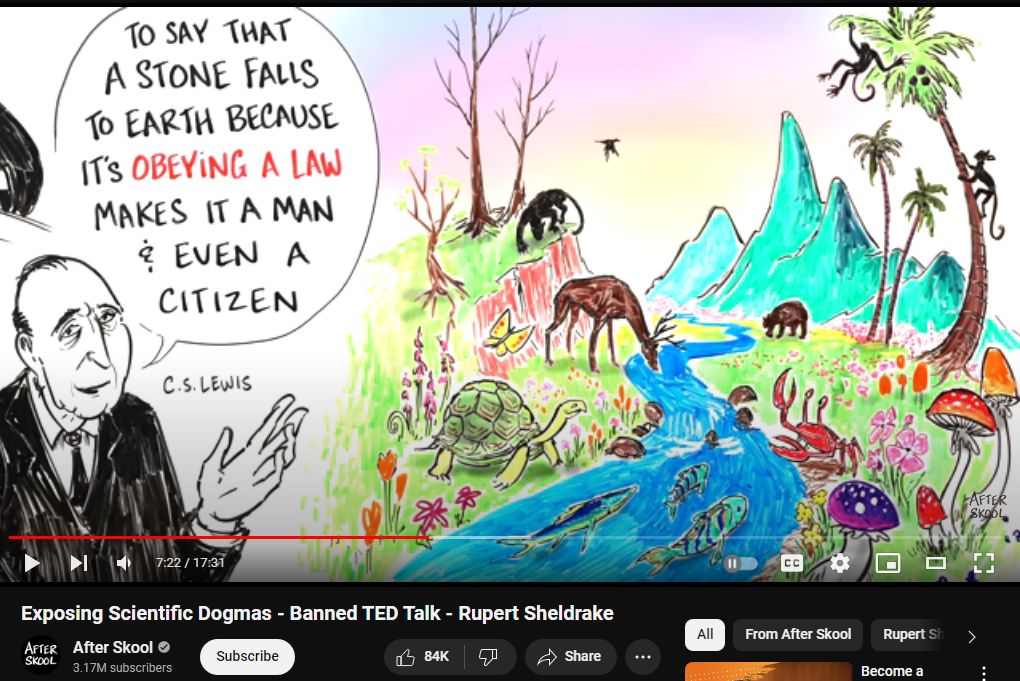“In an ‘evolutionary’ universe, why shouldn’t the laws themselves evolve?” — precisely
C.S. Lewis: “To say that a stone falls to earth because it is obeying a law makes it a man and even a citizen.”
https://www.youtube.com/watch?v=sF03FN37i5w
“The Science Delusion” / “Science Set Free”
— comment — “It’s so funny how Sheldrake is downputting “dogma” and “belief” but then employs BIG BANG as marker of “beginning of time”, wholly falling victim yet again to what is in a 100% theory, and worse, a Jesuitical theory, from the very world of dogma and unfounded belief.”
The concept of “peer review” in the scientific community is intended to uphold the integrity and accuracy of research by subjecting it to the scrutiny of other experts in the field before it is published. However, there are concerns and criticisms regarding how peer review can sometimes act as a gatekeeper, potentially leading to scientific dogma, the stifling of innovative ideas, and the suppression of the true scientific method. Here’s an exploration of these issues:
### 1. **Scientific Dogma and Conservatism**
– **Enforcement of Conventional Wisdom**: Peer review can sometimes enforce conformity as reviewers often evaluate new research based on existing paradigms. Innovative research that challenges established theories may struggle to get published if it contradicts the prevailing beliefs or methodologies favored by the dominant group of peers.
– **Citation Circles**: Some argue that peer review can lead to “citation circles” where certain groups of researchers frequently cite each other, potentially marginalizing outside or conflicting perspectives. This can reinforce specific theories or viewpoints, making them dominant and suppressing dissenting voices.
### 2. **Repulsion of Fresh Thought**
– **Risk Aversion**: The peer review process can be inherently conservative, favoring research that aligns with existing knowledge and methodologies. This can deter scientists from pursuing radical or unconventional ideas due to fear of rejection, which might delay or suppress the development of novel concepts that could advance the field.
– **Barrier to Interdisciplinary Research**: Innovative research often occurs at the intersection of disciplines. However, peer review by experts within a single field might undervalue or misunderstand the contributions from other disciplines, thus impeding truly groundbreaking interdisciplinary work.
### 3. **Suppression of the True Scientific Method**
– **Publication Bias**: There is a well-documented bias in favor of studies that have positive or significant results. Studies with negative or null results, which are equally important for scientific progress, are less likely to be published. This “file drawer problem” leads to a skewed view of reality and can mislead scientific priorities and funding.
– **Slow Adaptation**: The peer review process can be slow, delaying the dissemination of important findings. This lag can hinder the pace of scientific progress, especially in fast-moving fields where timely sharing of data and results is crucial.
### 4. **Belief vs. The Spirit of Science**
– **Science as a Belief System**: When peer review enforces a narrow range of ideas, it risks turning science into a belief system rather than an open-ended method of inquiry. This situation is antithetical to the foundational principle of science, which is to continually question and test the boundaries of human knowledge.
– **Open Science Movement**: In response to these criticisms, there’s a growing movement towards open science, which advocates for the transparency of raw data, open access to research outputs, and alternative methods of peer review. These initiatives aim to democratize science, making it more inclusive, collaborative, and innovative.
While peer review is crucial for maintaining scientific standards, its potential downsides highlight the need for continuous evaluation and reform of the process. Enhancing the transparency and inclusivity of peer review, alongside promoting a culture that genuinely values and supports innovative and interdisciplinary research, could help mitigate these issues and keep the spirit of true scientific inquiry alive.

